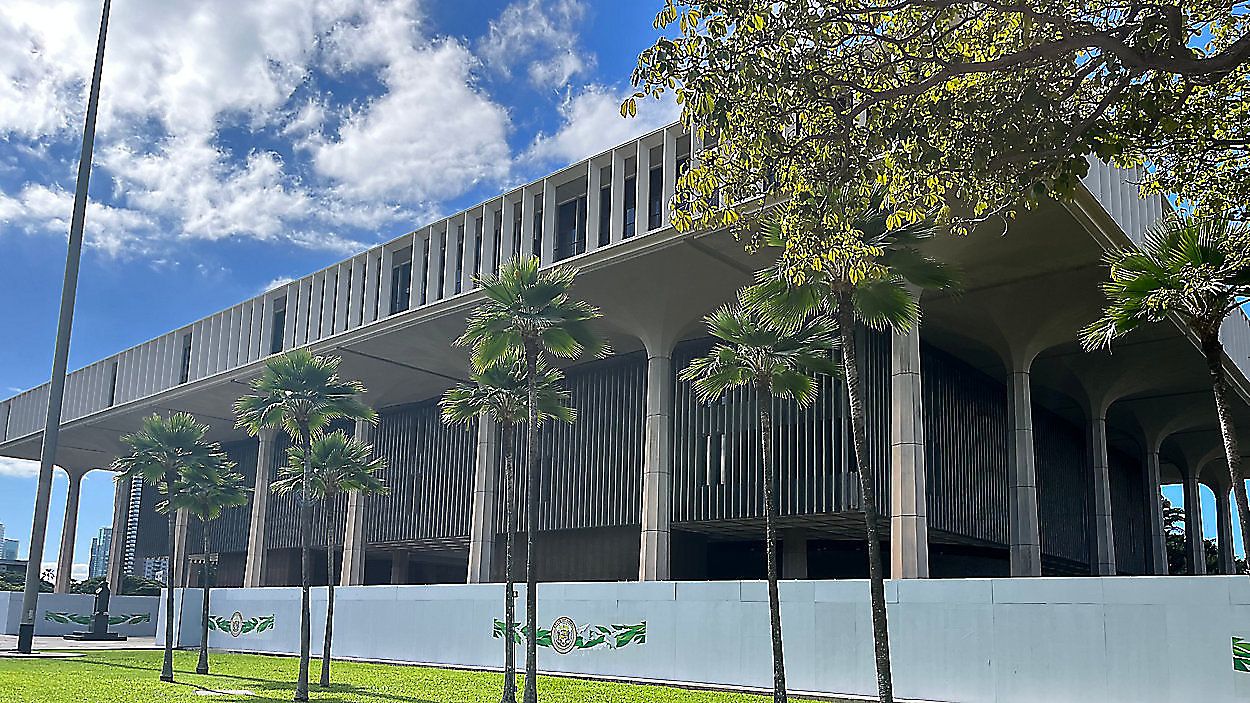HONOLULU — With the start of a new legislative session less than a week away, House and Senate majorities have identified their priorities for 2024, from perennial concerns like health care and housing to areas of more recent concern, like remediation of the Red Hill Bulk Fuel Storage Facility, the ongoing worker shortage and wildfire prevention.
“As we embark on the second year of the 32nd Legislature, the House Majority Caucus will continue to address key community issues, including affordable housing and homelessness, renewable energy, mental health needs in our community, and the shortage of healthcare workers across our state,” said House majority leader Nadine Nakamura said in a release issued on Thursday. “Additionally, we remain committed to addressing the impacts of the Maui wildfires and helping all of Hawaii‘s residents thrive.”
Senate majority leader Dru Mamo Kanuha said Democrats met at a retreat in November to identify and discuss legislative priorities.
“The Senate’s legislative priority areas for 2024 reflect the issues and concerns that were brought forth by the 22 members of our Majority Caucus present during our convening in early November, and in conversations with the newly appointed Sen. Troy N. Hashimoto,” Kanuha said. “The Senate majority is confident that, through hard work and collaboration with our colleagues in the Senate minority and House of Representatives, we will make significant progress on these important issues and provide much-needed assistance to our Maui Nui ohana as we navigate this recovery process together.”
Response to the Maui wildfires remained top of mind for both chambers.
The Senate majority identified several goals for overall emergency preparedness, recovery and resiliency, including ensuring departments and agencies have access to education and resources (including personnel necessary to prepare for and mitigate damage) and supporting ongoing Lahaina relief efforts, including examining insurance delivery, increasing insurance premiums and fire sprinkler requirements.
The Senate also wants to develop a statewide wildfire mitigation plan and fire risk assessment; adequately fund the Division of Forestry and Wildlife; establish programs to better prepare the electrical grid and other critical infrastructure for emergencies; revisit the authority of the Commission on Water Resource Management; form a fire risk task force; and seek permanent funding for the Hawaii Wildfire Management Organization.
Other related goals include establishing a local community land trust in West Maui with a structure to provide control to the community; re-establishing a chief fire marshal; supporting disaster-impacted artists; and exploring captive insurance for the state.
The House majority said it will consider recommendations contained in the Final Report of the House of Representatives Lahaina Wildfire Interim Working Groups.
The House majority continues to participate in the Act 279 Working Group overseeing the $600 million appropriation to the Department of Hawaiian Home Lands to help clear the waitlist of Native Hawaiians waiting for homestead land. More generally, majority members said they will continue to support more affordable housing for low- to moderate-income families.
Meanwhile, the Senate’s priority list for addressing housing and homelessness includes pursuing two additional 10,000-unit requests-for-quotes from the Hawaii Housing Finance and Development Corporation and Hawaii Community Development Authority; expanding housing into business and industrial zones; increasing access to affordable housing with income-blind housing and a reform of private developer subsidies; continuing to support permanent housing for homeless individuals; revisiting the landlord-tenant code; investing in housing infrastructure and broadening housing financing options; implementing property insurance requirements and exemptions; and supporting homeless outreach and intervention.
The Democratic majorities in both houses also have their sights on addressing vacancies in public service and other critical fields.
“Since the onset of the pandemic, vacancies throughout state agencies have persistently risen, resulting in numerous unfilled positions across the state,” the House majority stated in a release. “Furthermore, a recent report indicates that 30% of current state civil service employees will become eligible for retirement within the next five years. The House majority is committed to addressing these vacancies, examining strategies for retaining public workers amidst retirements, and exploring recruitment approaches to attract high-quality individuals to pursue careers in public service within the State of Hawaii.”
Their Senate counterparts likewise pledged to enhance workforce development in the state by reviewing minimum qualifications and equivalencies to fill vacant state positions; targeting growth in blue-collar jobs such as commercial driver license drivers and alternative energy jobs; reviewing career and technical education pathways; and supporting certification programs that address shortages on neighbor islands and other underserved areas of the state.
“The Senate is committed to expanding education and our education workforce,” the Senate majority stated in a release. “During this session, the Senate will work to expand access to quality early childhood education; create incentives for attracting qualified teachers, including teacher housing; and improve the University of Hawaii system with a focus on student needs.”
Both the Senate and House majorities emphasized the need for improved workforce development in the health care and mental health areas.
“The Senate recognizes that our healthcare industry, in particular, requires additional workforce development, and the Senate is committed to increasing the support for the state’s long-term care workforce; growing the state’s medical and nursing staff workforce; and investigating what barriers prevent recruitment of out-of-state healthcare professionals,” the Senate majority stated.
Among other key concerns, the Senate majority said it would be prioritizing economic development via public-private partnerships and initiatives like renting out vacant state-owned facilities; infrastructure investments; food production sustainability; and a broad range of environmental protection and natural resource management measures.
The House’s list of priorities further includes aquifer remediation in the aftermath of the Red Hill water contamination crisis and progress toward the state’s goal of achieving 100% renewable energy.
Michael Tsai covers local and state politics for Spectrum News Hawaii. He can be reached at michael.tsai@charter.com.








